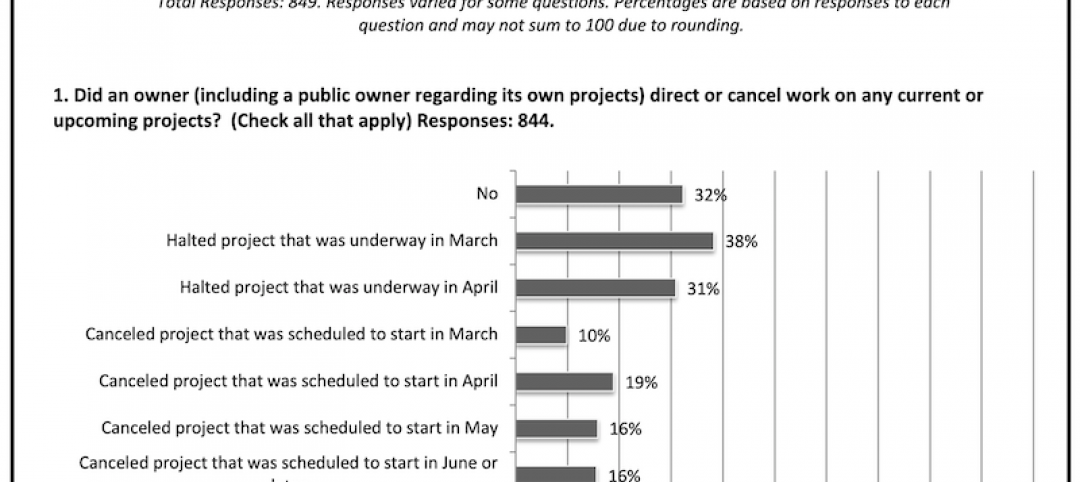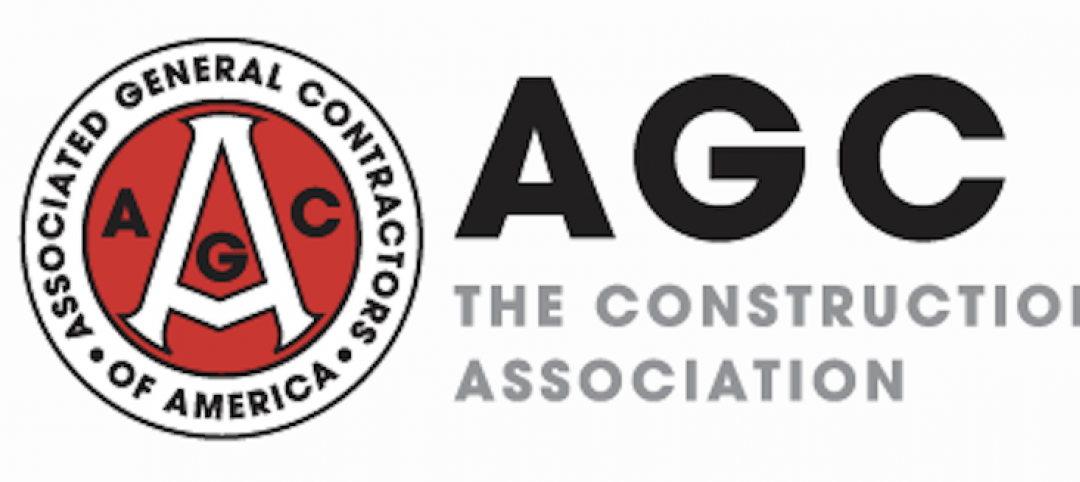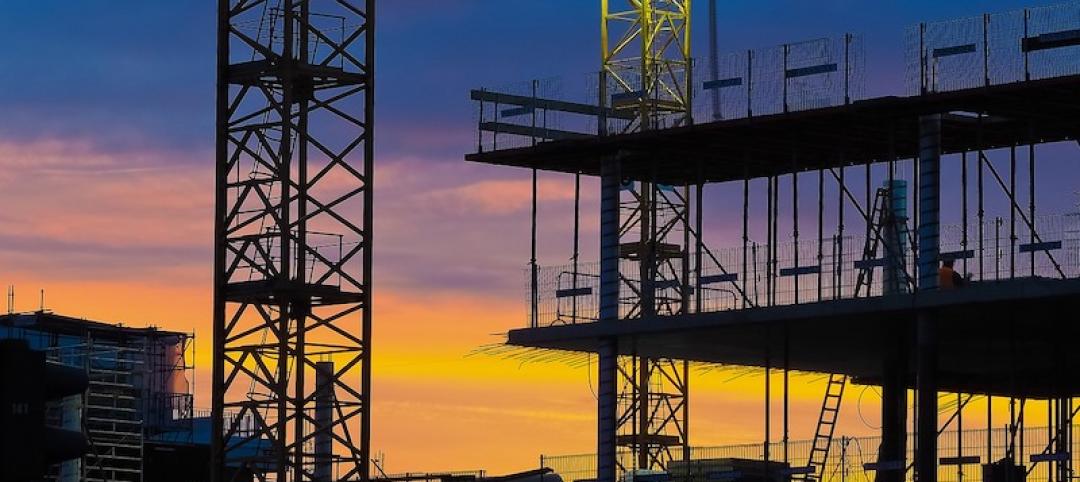Richard Rubin sees the current spate of empty hotels, motels, retail, and office spaces created by the pandemic as opportunities for adaptive reuse to affordable housing, which is in perennially short supply in many markets in the U.S. and around the world.
Rubin is CEO of Repvblik, a Los Angeles-based company that specializes in such conversions. He and his partner Chris Potterpin of PK Housing Michigan—which is part of a multistate property management company that includes a development and construction division—have several hospitality-to-housing projects in the works in the Midwest, including the conversation of a hotel in Stillwater, Okla., to 141 units of student housing located a mile from Oklahoma State University that should be ready for occupancy this fall.
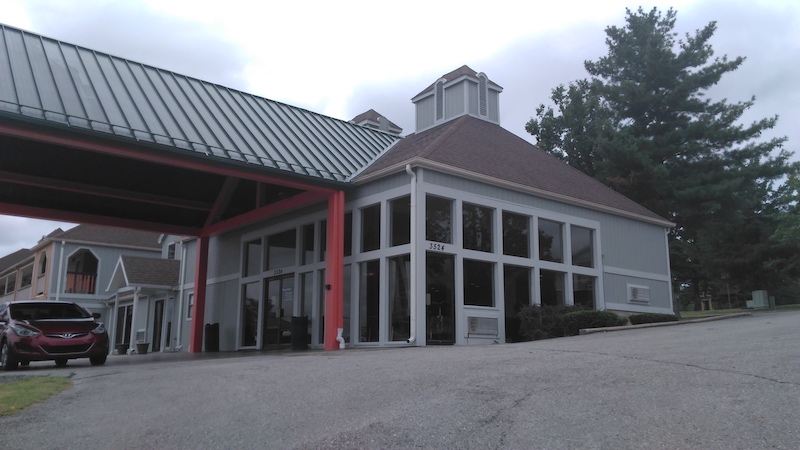 Plato's Cave is an adaptive reuse of a Days Inn in Branson, Mo. When completed it will have 341 rentable apartments, each of which with a kitchen that was installed by the developer. Images: Repvblik
Plato's Cave is an adaptive reuse of a Days Inn in Branson, Mo. When completed it will have 341 rentable apartments, each of which with a kitchen that was installed by the developer. Images: Repvblik
Repvblik’s most ambitious project to date is the conversion of a 420-key Days Inn within six buildings on 14.5 acres in Branson, Mo., which had been vacant for at least eight years, to Plato’s Cave, which when completed next year will offer 341 rentable apartments. The first phase, with nearly 170 units, opened recently and was renting for between $495 and $695 per month. “Branson is leasing very well,” says Rubin in an interview with BD+C last week.
The hotel rooms were 285 sf. Some of the hotel units were combined into one apartment. Repvblik added kitchens, installed sprinklers in four of the buildings, and built a clubhouse, fitness center, and exterior fencing. Rubin estimates that this project, including the amenities, cost between $15,000 and $20,000 per unit converted, with most of the work being done by the company’s internal construction crews. “It’s a heavy lift, but not as heavy as a greenfield project,” he says.
His financing for the projects in Missouri and Oklahoma is a combination of syndicated equity, construction loans, and permanent debt financing.
TRANSFERRING IDEAS FROM HIS HOMELAND
Rubin, a South African, came to the U.S. in 2015 for a student housing conference in Austin, Texas, and decided to stay. (He was particularly attracted to living in southern California.) In the 10 years before his arrival, Rubin was managing director for AENGUS Property Holdings, a “turnkey” developer focused on urban renewal.
He recalls that in the early 2000s, Johannesburg decentralized its business district, which led to a series of company relocations and vacant high rises. Rubin approached REITs that owned some of those high rises about converting their spaces into affordable rental units, which he started doing in 2004. He says that over the following decade, AENGUS converted “several million square feet” of commercial office space into workforce housing.
After he emigrated to the U.S., it took him a few years to get the lay of the land. He and Potterpin formed Repvblik in 2016-17, and the company initially looked for adaptive reuse opportunities in Detroit. The company is now homed in on the Midwest, where Rubin claims there are “hundreds” of hotels and motels that are either vacant because of the COVID-19 virus, semi occupied, or have been closed for several years.
Aside from the Stillwater and Branson projects, Repvblik has two hotel-to-workforce housing conversions in the works in Michigan, and one in Ohio. He declined to specify which markets in each state.
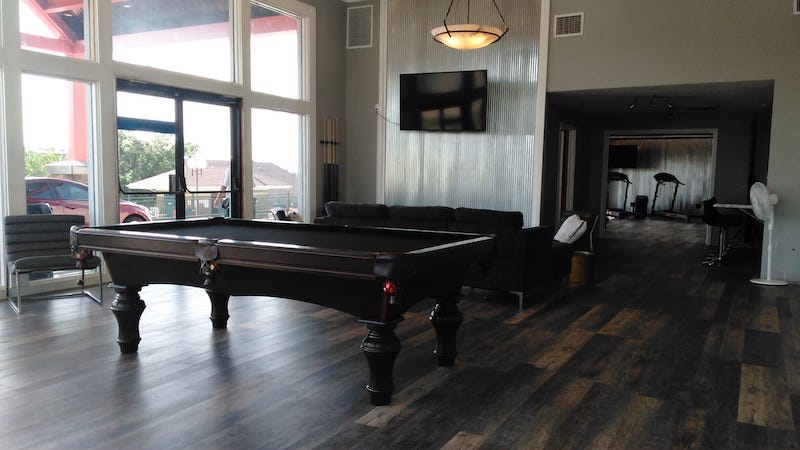 A common area in Plato's Cave includes a billiards table and fitness center. Image: Repvblik
A common area in Plato's Cave includes a billiards table and fitness center. Image: Repvblik
COMPARED TO OTHER CRES, AFFORDABLE HOUSING IS LOOKING BETTER
Putting on his sales cap, Rubin is convinced that now is the time for investors to jump into affordable housing. The conventional places where they might have parked their money previously, like retail malls or hospitality, have been decimated by the pandemic, and there’s no telling what “recovery” will look like for either.
On the other hand, Rubin states, there’s are always opportunities in affordable housing because “there’s so little of it.” Rubin calls this the “missing middle.” And with unemployment at its highest levels in generations, the need to provide individuals and families with places to live they can afford has rarely been more pressing.
Related Stories
Coronavirus | Mar 26, 2020
AIA praises Congress for advancing desperately needed COVID-19 relief
Approval for the latest relief legislation advances a number of AIA-supported measures to help meet the needs of firms and members.
Coronavirus | Mar 25, 2020
Coronavirus pandemic's impact on U.S. construction, notably the multifamily sector - 04-30-20 update
Coronavirus pandemic's impact on U.S. construction, notably the multifamily sector - 04-30-20 update
Coronavirus | Mar 25, 2020
Plaza Construction and Central Consulting & Contracting strategic alliance expands to Florida in response to coronavirus pandemic
New York City-based partnership to aid Florida healthcare systems amid COVID-19 outbreak and will continue medical construction in the region following resolution.
| Mar 25, 2020
Designing public health laboratories to safeguard researchers during pandemics
As laboratory designers, we want to shed light on a subset of our population critical to protecting us from, and preventing the spread of, severe outbreaks: public health researchers.
Market Data | Mar 23, 2020
Coronavirus will reshape UAE construction
The impact of the virus has been felt in the UAE, where precautionary measures have been implemented to combat the spread of the virus through social distancing.
Coronavirus | Mar 21, 2020
Perkins and Will’s CEO sees a light at the end of COVID-19 tunnel
Phil Harrison says the virus outbreak could make more clients see the connection between design and wellbeing.
Coronavirus | Mar 21, 2020
Construction business and union leaders call on government officials to include construction as an 'essential service' during shutdowns
The chief executive officer of the Associated General Contractors of America, Stephen E. Sandherr, and the President of North America’s Building Trades Unions, Sean McGarvey, issued the following joint statement urging Government Officials to Exempt Construction Work from Regional, State and Local Work Shutdowns.
Coronavirus | Mar 21, 2020
Associated General Contractors launches eight-part webinar series around COVID-19
The programming, which begins Monday, will offer advice on how businesses might need to adjust during the virus.
Coronavirus | Mar 20, 2020
BD+C research: The AEC industry braces for tough sledding in the coming months amid COVID-19 outbreak
A new BD+C poll of U.S. architecture, engineering, and construction firms finds that companies are anticipating project postponements and delays.
Coronavirus | Mar 20, 2020
Pandemic has halted or delayed projects for 28% of contractors
Coronavirus-caused slowdown contrasts with January figures showing a majority of metro areas added construction jobs; Officials note New infrastructure funding and paid family leave fixes are needed.



